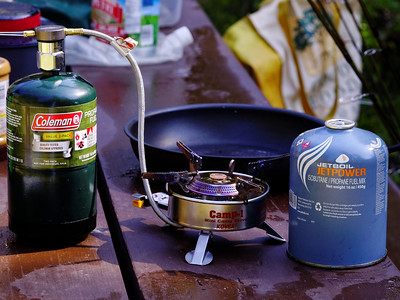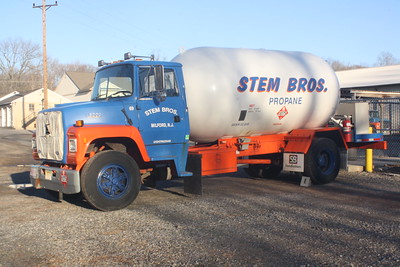
Propane and butane are both gases that are commonly used as fuels for heating and cooking. They are similar in many ways, but they have some key differences that affect their storage and usage.
One of the main differences between propane and butane is their vapor pressure. Vapor pressure is a measure of how easily a liquid evaporates. Butane has a higher vapor pressure than propane, which means that it evaporates more easily at normal temperatures and pressures. This also means that butane will evaporate more quickly when it is stored or used, which can lead to a shorter lifespan.
Another factor that affects the lifespan of propane and butane is their boiling point. Boiling point is the temperature at which a liquid turns into a gas. Propane has a higher boiling point than butane, which means that it can be used at lower temperatures without evaporating. This makes propane a better choice for outdoor activities such as camping, where temperatures can vary widely.
The type of container used to store propane or butane can also affect their lifespan. Both gases are typically stored in pressurized tanks or cylinders, but the materials used to make these containers can vary. Propane tanks are usually made of steel, which is strong and durable. Butane tanks are often made of aluminum or plastic, which are lighter but less durable. Steel tanks are more resistant to damage from external factors such as impacts or temperature changes, which can help prolong the lifespan of the propane stored inside.
Finally, the frequency of use can also affect the lifespan of propane or butane. If a tank of fuel is only used occasionally, it may last longer than one that is used frequently. This is because each time the fuel is used, some of it is burned off and evaporated, reducing the amount of fuel left in the tank.
Propane tends to last longer than butane due to its lower vapor pressure, higher boiling point, and the durability of the steel containers used to store it. However, the lifespan of either gas can be affected by a range of factors, and it is always important to follow the manufacturer’s instructions for proper storage and handling to ensure the longevity of the fuel.
Factors Affecting the Lifespan of Propane and Butane
- Storage conditions: The way in which propane and butane are stored can have a significant impact on their lifespan. For example, both gases should be kept in a dry, cool place away from direct sunlight and heat sources. Exposure to heat and sunlight can cause the gas to expand, which may lead to leaks or other safety hazards. Moisture can also cause rust or corrosion on the storage container, which can compromise the integrity of the tank.
- Type of container: The type of container used to store propane and butane can also affect their lifespan. For example, steel containers are more durable and resistant to damage than aluminum or plastic containers, which can be more prone to cracking or warping over time. It is important to choose a container that is designed specifically for the type of gas being stored, and to follow the manufacturer’s recommendations for proper use and maintenance.
- Frequency of use: The frequency with which propane and butane are used can also affect their lifespan. If the gas is used frequently, it may need to be refilled or replaced more often than if it is only used occasionally. This is because each time the gas is used, some of it is burned off or evaporated, which reduces the amount of fuel left in the tank.
- Manufacturer’s instructions: Finally, it is important to follow the manufacturer’s instructions for proper use and maintenance of propane and butane. This may include regular inspections and maintenance of the storage container, as well as proper disposal of any unused gas. Failure to follow the manufacturer’s instructions can result in safety hazards, reduced efficiency, and shortened lifespan of the gas.
Advantages and Disadvantages
| Advantages | Disadvantages |
|---|---|
| Propane | Propane |
| – Lower vapor pressure, which allows it to be stored at higher pressures without evaporating as quickly | – Higher cost than butane |
| – Higher boiling point, which makes it a better choice for outdoor activities where temperatures can vary widely | – Can be difficult to find in some areas |
| – Can be used in colder temperatures without evaporating | – May require a larger storage tank or container due to lower energy density |
| – Typically stored in durable steel containers, which are resistant to damage from external factors | – Heavier than butane, which can make it less portable for some applications |
| Butane | Butane |
| – Lower cost than propane | – Higher vapor pressure, which can lead to faster evaporation and shorter lifespan |
| – Higher energy density, which means that it can be stored in smaller, lighter containers | – Lower boiling point, which can make it less effective in colder temperatures |
| – Can be found at most hardware and outdoor stores | – Typically stored in aluminum or plastic containers, which may be less durable than steel |
| – Lightweight and portable, which makes it a good choice for camping and other outdoor activities | – May be more prone to leaking or other safety hazards |
To Make Finalization
The lifespan of propane and butane can be affected by several factors, including storage conditions, type of container, frequency of use, and manufacturer’s instructions. While both propane and butane have their advantages and disadvantages, the choice of which gas to use will depend on the specific needs and circumstances of the user.
When it comes to lifespan, propane generally lasts longer than butane due to its lower vapor pressure and higher boiling point. However, this does not mean that propane is always the best choice for every situation. Butane’s lower cost and higher energy density may make it a better choice in some cases, such as for portable applications where weight and space are a concern.
Ultimately, the decision of whether to use propane or butane will depend on a variety of factors, including cost, availability, intended use, and storage conditions. It is important to carefully consider all of these factors when making a decision about which gas to use, and to follow the manufacturer’s instructions for proper use and maintenance to ensure safe and effective operation.

Jeremy is a highly experienced professional propane technician with over 21 years of experience in the industry. Throughout his career, he has gained extensive knowledge and expertise in propane gas installation, maintenance, and repair, as well as in ensuring safety and compliance with industry standards. Mike has worked with various residential, commercial, and industrial clients, providing top-notch services and solutions to meet their propane needs. He is dedicated to his craft and passionate about delivering exceptional service to his clients.



